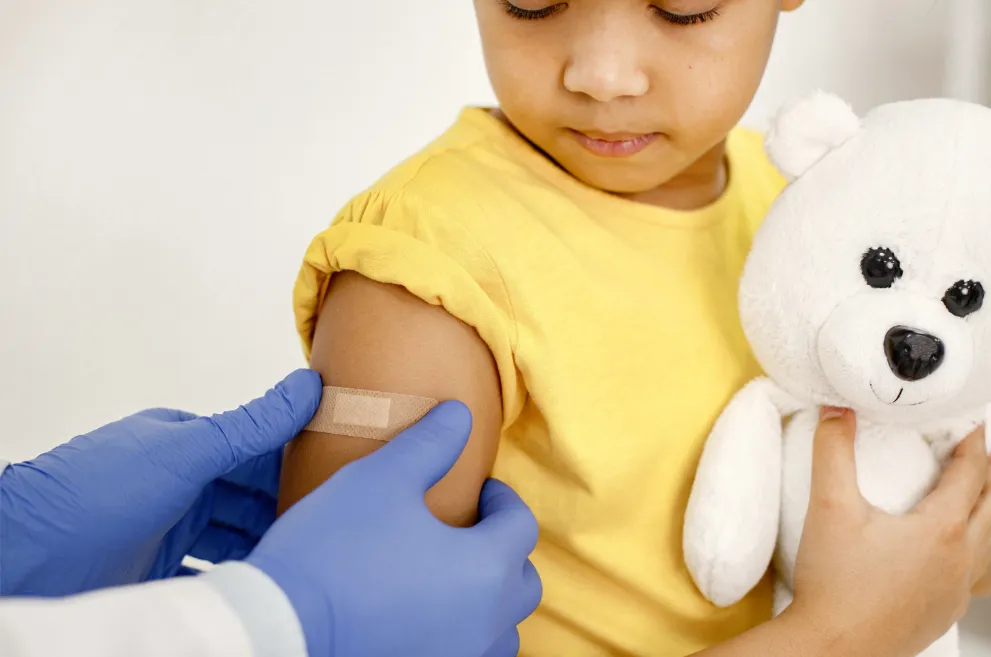Written and medically reviewed by Dorcas Morak, PharmD
World Immunization Week is a global event that takes place annually from April 24 to April 30. It is an opportunity to celebrate the successes of immunization and raise awareness about the importance of vaccination to protect people of all ages from vaccine-preventable diseases.This week emphasizes the critical role that vaccines play in bringing people together, protecting health, and building strong communities. The COVID-19 pandemic has highlighted the importance of vaccination, with the development of safe and effective COVID-19 vaccines representing a historic achievement in science and medicine.
What are the benefits of vaccines?
The benefits of vaccines are clear: they prevent illness, disability, and death from infectious diseases. Vaccines also have a broader impact on society by reducing healthcare costs, improving productivity, and promoting economic growth. In addition, vaccines protect vulnerable populations, such as young children, pregnant women, and people with weakened immune systems.
How do vaccines work?
Immunization is a vital tool in the fight against infectious diseases. Vaccines work by training the body's immune system to recognize and fight specific pathogens, such as bacteria or viruses. When a person is vaccinated, their body produces an immune response that prepares it to recognize and fight the pathogen if it ever enters the body again. This means that if a vaccinated person comes into contact with the pathogen, their immune system can quickly mount a defense, preventing the disease from taking hold or reducing its severity.
Thanks to vaccines, many infectious diseases that were once common are now rare or even eradicated in some parts of the world. Diseases like smallpox and polio, which once caused widespread suffering and death, have been almost completely eliminated through vaccination campaigns. Immunization has also significantly reduced the burden of other diseases such as measles, rubella, and tetanus.
What are the challenges to global acceptance of immunizations?
Despite the tremendous progress made in the field of immunization, many people around the world still do not have access to vaccines. This is due to a variety of factors, including poverty, conflict, and lack of infrastructure. As a result, many children die each year from vaccine-preventable diseases.
In addition, vaccine hesitancy and misinformation remain significant challenges. Misinformation about vaccines can lead to a decline in immunization rates, which can result in the re-emergence of vaccine-preventable diseases. World Immunization Week is an opportunity to address these challenges and promote accurate information about vaccines and their importance in protecting health.
Why is World Immunization Week important?
Immunization is one of the most cost-effective public health interventions and has been instrumental in reducing the burden of many infectious diseases, such as polio, measles, and tetanus. Vaccines have saved millions of lives and prevented millions more from suffering from serious illness and disability. Despite this, there are still millions of people who do not have access to life-saving vaccines, particularly in low-income countries. World Immunization Week provides an opportunity to raise awareness about the importance of immunization and to advocate for increased access to vaccines for everyone.
World Immunization Week also highlights the need for continued investment in vaccine research and development to address emerging infectious diseases and to improve the effectiveness of existing vaccines. With new variants of COVID-19 emerging and the threat of future pandemics, investing in vaccine research and development has never been more important.
How has World Immunization Week contributed to global health?
Since its inception in 2012, World Immunization Week has played a critical role in promoting the use of vaccines and increasing awareness about their benefits. It has also been instrumental in driving progress towards achieving global immunization targets, such as the Global Vaccine Action Plan, which aims to provide access to vaccines for all individuals, regardless of their geographical location or economic status.
World Immunization Week aims to raise awareness of the challenges to global immunization and to encourage governments and individuals to take action. During the week, health organizations around the world hold events and campaigns to promote immunization and to educate people about the importance of vaccines. Governments may also use the week to launch new immunization programs or to increase funding for existing programs.
Vaccines have played a significant role in improving global health over the past century. According to the WHO, vaccines have prevented an estimated 2-3 million deaths each year from diseases such as measles, polio, and tetanus. In addition to preventing deaths, vaccines have also reduced the incidence of many infectious diseases, leading to improved health outcomes and increased life expectancy. Continuing to promote information based in fact and supporting efforts to encourage governments globally to improve their vaccination infrastructure is critical to global health.
How can I get involved?
If you want to get involved in World Immunization Week, here are some steps you can take:
Get informed: Learn more about the importance of immunization and the impact of vaccine-preventable diseases. You can visit the WHO's website for information on the latest global immunization data, vaccine safety, and vaccine research and development.
Share information: Spread the word about the importance of immunization by sharing information with your family, friends, and community. You can share information on social media, participate in online discussions, and distribute flyers or posters.
Volunteer: Volunteer with a local or international organization that focuses on immunization. You can help with vaccine distribution, vaccine education, or advocacy efforts.
Donate: Consider making a donation to a reputable organization that supports immunization efforts. Your donation can help provide vaccines to people who may not have access to them.
Participate in events: Attend or organize events in your community to raise awareness about the importance of immunization. You can host a vaccine clinic, a vaccination drive, or a community forum on immunization.
Remember, getting involved in World Immunization Week can help protect the health and well-being of people around the world.
















